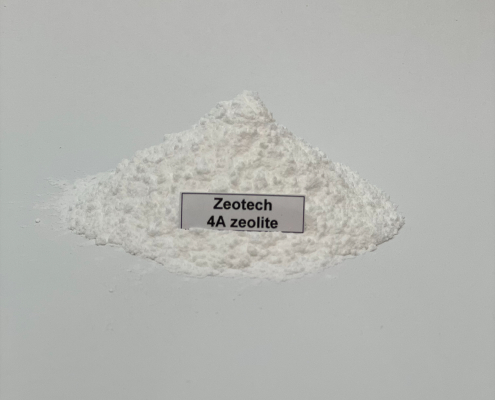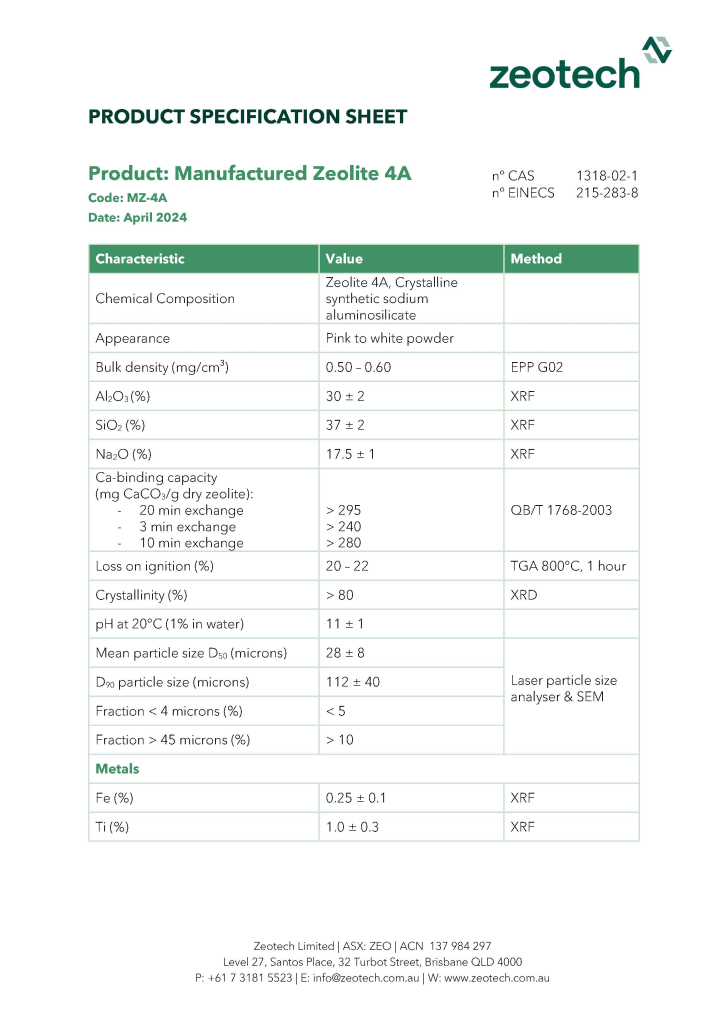Developing advanced materials ‘Zeolites’ through sustainable innovation
Proprietary mineral processing technology
Zeotech holds a portfolio of intellectual property, including proprietary know-how in the synthesis of zeolites.
Our patent-pending technology for producing commercial-grade Linde Type A zeolite was developed in partnership with The University of Queensland (UQ), and we continue to de-risk and optimise this process for commercial scalability.
In addition, we have developed sustainable in-house ‘trade-secret’ synthesis methods targeting the production of a range of zeolite products.
Our team remains focused on advancing applications that leverage the unique properties of manufactured zeolites to deliver innovative solutions addressing global sustainability challenges.
Porous Aluminosilicate Frameworks
We currently produce targeted zeolite product samples from our own laboratory and these can be evaluated by interested commercial organisations.
Our portfolio of zeolite synthesis technologies (patent-pending and trade-secret), are capable of producing a range of targeted grades and products.
Manufactured zeolites are aluminosilicates with a sponge-like structure, made up of tiny pores (frameworks) that make them useful as catalysts or ultrafine filters. They are commonly known as molecular sieves and can be designed to selectively adsorb molecules or ions dependent on their unique construction and have the ability to be regenerated.
Zeolites act much like a magnet that can hold cations, heavy metals, ammonia, low level radioactive elements, toxins, petrochemicals, many different types of gases and various solutions.
Our primary focus is on the synthesis of Linde Type A (LTA) zeolite powder, and we have also undertaken early research on a range of zeolite frameworks.
Zeolite A is the most common zeolite type and is a sodium aluminosilicate. Sodium ions present in zeolite A can be replaced with other cations, potassium and calcium, which determine the pore size and in turn framework capabilities.



